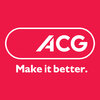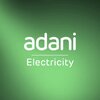Electrical Project Engineer
60+ Electrical Project Engineer Interview Questions and Answers
Asked in Delta Construction Co. W.L.L

Q. For a load less than 20 kW in a 3-phase distribution board, what size of main incomer MCCB and cable should be used to connect the distribution board to the panel?
For a load less than 20 kW in a 3 phase Distribution board, a main incomer MCCB of 32A and a cable size of 6mm should be given.
Main incomer MCCB size should be 32A for a load less than 20 kW in a 3 phase Distribution board
Cable size should be 6mm for the Distribution board from the panel

Asked in Vanderlande Industries

Q. What is important factors in cable calculation? Types of communication used in Automation industry & its length limitations, What is difference between Analog input 4-20mA & analog input (0-10v). Dg synch contr...
read moreImportant factors in cable calculation, types of communication used in automation industry, difference between analog input 4-20mA & analog input (0-10v), DG synch control panel & its working philosophy, various types of starter used in control panel, testing of panel as an individual at site, ingress protection.
Cable calculation factors include voltage drop, current carrying capacity, and cable length.
Types of communication used in automation industry include Ethernet, Modbu...read more
Electrical Project Engineer Interview Questions and Answers for Freshers
Asked in Delta Construction Co. W.L.L

Q. What wire size and cable type are installed in the distribution board for power circuits, split AC units, and cooker units?
Wire size and type for power circuits in distribution boards depend on load, application, and local regulations.
For split AC units, typically use 2.5mm² to 4mm² copper cable, depending on the unit's capacity.
Cooker units often require 6mm² to 10mm² cable, especially for electric cookers with higher power ratings.
Power circuits may use 4mm² to 10mm² cables, depending on the load and distance from the distribution board.
Always consider local electrical codes and regulations whe...read more
Asked in Delta Construction Co. W.L.L

Q. What is the ELCB rating for underwater and swimming pool lights in the swimming pool distribution board?
The rating of ELCB in the swimming pool distribution board for underwater lights and swimming pool lights should be at least 30mA.
The ELCB rating should be at least 30mA to provide protection against electric shock in wet conditions.
This is important for safety in swimming pools where the risk of electric shock is higher.
ELCBs with higher ratings such as 100mA or 300mA may not provide adequate protection in wet environments.
It is recommended to consult with a qualified electr...read more
Asked in Delta Construction Co. W.L.L

Q. What type of wire size is installed in the Distribution board for lighting circuits?
The wire size installed in the Distribution board for lighting circuits is typically 1.5mm² or 2.5mm².
Typically, 1.5mm² or 2.5mm² wire sizes are installed in the Distribution board for lighting circuits.
The wire size is chosen based on the current rating and load requirements of the lighting circuit.
Proper wire sizing is crucial to ensure safety and prevent overheating in the electrical system.
Asked in Delta Construction Co. W.L.L

Q. How many power sockets can be connected in one ring main circuit in a Distribution board?
The number of power sockets that can be connected in a 1no ring main circuit in a Distribution board depends on the load capacity and design of the circuit.
The number of power sockets will depend on the load capacity of the circuit.
Consider the power rating of each socket and the total load that the circuit can handle.
Consult electrical regulations and guidelines for maximum allowable load on a ring main circuit.
Factors such as wire gauge, circuit breaker rating, and safety c...read more
Electrical Project Engineer Jobs



Asked in Delta Construction Co. W.L.L

Q. For a power circuit, what should be the ELCB and MCCB ratings in the distribution board?
The rating of ELCB and MCCB in a distribution board for power circuits should be based on the load requirements and safety regulations.
ELCB rating should be based on the maximum fault current that can occur in the circuit to ensure proper protection against electrical shocks.
MCCB rating should be selected based on the maximum current that the circuit can handle without tripping.
Consider the type of load connected to the circuit (e.g. motors, lighting, heating) when determinin...read more
Asked in Delta Construction Co. W.L.L

Q. What should be the MCB rating for a cooker unit in villas and flats?
The MCB rating for cooker unit in villas and flats should typically be around 32A.
The MCB rating for a cooker unit is usually 32A to handle the load of the cooker.
It is important to consider the power consumption of the cooker and any other appliances connected to the same circuit.
Consulting with an electrician or following local electrical codes can help determine the appropriate MCB rating.
Using a higher MCB rating than necessary can lead to safety hazards, while using a lo...read more
Share interview questions and help millions of jobseekers 🌟

Asked in Delta Construction Co. W.L.L

Q. How does the traffic barrier system interface with the Fire Alarm System?
Traffic barrier system can be integrated with Fire Alarm System to provide early warning and evacuation signals in case of fire.
Traffic barrier system can be equipped with fire alarm sensors to detect smoke or fire.
Once fire is detected, the barrier system can automatically open to allow for evacuation of vehicles and people.
The barrier system can also trigger alarms and flashing lights to alert nearby individuals of the fire.
Integration with Fire Alarm System ensures quick r...read more
Asked in Firstfix

Q. What are site management and site issues?
Site management involves overseeing the construction site and ensuring that the project is completed on time and within budget. Site issues refer to any problems that arise during the construction process.
Site management involves coordinating with contractors, managing resources, and ensuring compliance with safety regulations.
Site issues can include delays due to weather, unexpected construction challenges, or issues with permits and approvals.
Effective site management and p...read more
Asked in Delta Construction Co. W.L.L

Q. Is a shunt trip required for a Smoke Extract Fan Panel?
Yes, a shunt trip is required for Smoke Extract Fan Panel.
A shunt trip is required for Smoke Extract Fan Panel to ensure the fan can be shut off remotely in case of emergency.
It is a safety feature that allows for quick deactivation of the fan in case of fire or smoke detection.
Without a shunt trip, there may be delays in shutting off the fan during an emergency situation.

Asked in VIKRAN Engineering & Exim

Q. 1.33kv&11kv BOQ 2.Power transformer description 3.what CT/PT will do
The interview question is about 1.33kv&11kv BOQ, power transformer description, and the role of CT/PT.
BOQ for 1.33kv and 11kv involves preparing a bill of quantities for electrical equipment and materials required for the project.
Power transformer description includes its specifications, such as voltage rating, power rating, winding configuration, cooling system, etc.
CT/PT (Current Transformer/Potential Transformer) are used for measuring current and voltage respectively in h...read more
Asked in Delta Construction Co. W.L.L

Q. Do galvanized cable trays and cable trunking require earthing?
Yes, galvanised cable tray and cable trunking should be earthed for safety reasons.
Galvanised cable tray and cable trunking should be earthed to prevent electric shock hazards.
Earthing helps in dissipating any fault currents that may occur in the system.
It also helps in protecting the equipment and personnel from potential electrical faults.
Proper earthing ensures the system meets safety standards and regulations.
Examples of earthing methods include connecting the tray or tru...read more


Q. How do you develop and manage electricity costing and savings?
I develop and manage electricity costing and savings by analyzing usage data, implementing energy-efficient solutions, and negotiating with suppliers.
Analyze usage data to identify areas of high consumption
Implement energy-efficient solutions such as LED lighting and smart thermostats
Negotiate with suppliers for better rates and contracts
Monitor and track energy usage to ensure savings are being achieved
Regularly review and update energy management strategies
Collaborate with ...read more

Asked in VIKRAN Engineering & Exim

Q. 4.how to find transformer is star connected or delta connected 5.APL/BPL/AGL material 6.what is ROW..
Answering questions related to electrical engineering
To find if a transformer is star or delta connected, check the connection of the primary and secondary windings
APL/BPL/AGL materials refer to Above Poverty Line/Below Poverty Line/Anti-Graffiti materials used in construction
ROW stands for Right of Way, which is the legal right to pass through a property or land

Asked in Shyam Steel Manufacturing

Q. What was the rating of the main incomer ACB in the previous plant?
The rating of the Main incomer ACB in the previous plant is typically determined based on the total load requirements of the plant.
Main incomer ACB rating is usually determined based on the total load of the plant
It is important to consider factors like peak load, future expansions, and safety margins when selecting the rating
For example, if the total load of the previous plant was 5000kW, the Main incomer ACB rating might be 6300A

Asked in Larsen & Toubro Limited

Q. If a vendor is unresponsive, what course of action will you take?
Addressing unresponsive vendors involves communication, escalation, and alternative solutions to ensure project continuity.
Initiate follow-up communication via email or phone to remind the vendor of pending issues.
Escalate the matter to higher management within the vendor's organization if initial attempts fail.
Explore alternative vendors or solutions to mitigate project delays, ensuring continuity.
Document all communication attempts for accountability and future reference.
Se...read more

Asked in Larsen & Toubro Limited

Q. What is the allowable slope for the floor of a substation during equipment installation?
The allowable slope for substation floors is typically 1-2% to ensure proper drainage and equipment stability.
A slope of 1-2% (1/8 to 1/16 inch per foot) is generally recommended.
This slope helps in drainage, preventing water accumulation around equipment.
For example, in outdoor substations, a 1% slope directs rainwater away from critical areas.
Excessive slopes can lead to equipment instability or operational issues.

Asked in Larsen & Toubro Limited

Q. What are the difference between FATs and SATs? Which is more important and why?
FATs (Factory Acceptance Tests) and SATs (Site Acceptance Tests) ensure equipment functionality at different stages of deployment.
FATs are conducted at the manufacturer's facility before shipping to ensure equipment meets specifications.
SATs are performed at the installation site to verify that the equipment operates correctly in its intended environment.
FATs focus on the equipment's design and functionality, while SATs assess integration with other systems and site condition...read more

Asked in Adani Electricity

Q. What is the vector group of a delta-star step-down transformer?
The vector group of a delta-star step down transformer is Yd11.
The vector group Yd11 indicates that the primary winding is connected in delta (Y) and the secondary winding is connected in star (d) with a phase shift of 30 degrees.
Yd11 is a common vector group for step down transformers used in distribution systems.
Understanding the vector group is important for proper connection and operation of transformers.
Asked in R&I Electrical Appliances

Q. What installation precautions should be taken for distribution transformers and power transformers?
Precautions for installation of distribution and power transformers.
Ensure proper grounding and earthing
Ensure proper ventilation and cooling
Ensure proper alignment and leveling
Ensure proper cable and wire connections
Ensure proper labeling and identification
Ensure proper safety measures are taken during installation
Ensure proper testing and commissioning before energizing
Ensure proper maintenance and inspection after installation
Asked in Megarail Power Projects

Q. What is transformer & function & operation, testing etc.
A transformer is an electrical device that transfers electrical energy between two or more circuits through electromagnetic induction.
Transformers are used to increase or decrease voltage levels in electrical circuits.
They consist of two coils of wire, known as the primary and secondary coils, which are wound around a core made of ferromagnetic material.
The primary coil is connected to the input voltage source, while the secondary coil is connected to the output load.
When an ...read more

Asked in Triveni Engineering & Industries

Q. Explain the working and troubleshooting of substations, PCC panels, and PMCC panels.
Understanding substation connections to PCC and PMCC panels, including their operation and troubleshooting techniques.
Substations transform high voltage to lower voltage for distribution.
PCC (Power Control Center) panels manage power distribution to various loads.
PMCC (Power Motor Control Center) panels control and monitor motors.
Common troubleshooting includes checking for voltage drops, circuit continuity, and equipment overheating.
Example: If a motor fails to start, check ...read more

Asked in Shyam Steel Manufacturing

Q. What is the weigh feeder signal control diagram?
A weigh feeder signal control diagram is a schematic representation of the control system for a weigh feeder.
The diagram typically includes components such as sensors, transmitters, controllers, and actuators.
It shows how the signals from the sensors are processed by the controller to adjust the flow of material in the weigh feeder.
The control diagram may also include feedback loops to ensure accurate and consistent feeding.
Example: Sensors measure the weight of material on t...read more
Asked in Firstfix

Q. types of Transformers , switch gear, cable
Transformers, switchgear, and cables are essential components of electrical systems.
Transformers are used to step up or step down voltage levels in electrical systems.
Switchgear is used to control and protect electrical equipment.
Cables are used to transmit electrical power and signals.
Types of transformers include power transformers, distribution transformers, and instrument transformers.
Types of switchgear include circuit breakers, fuses, and disconnect switches.
Types of ca...read more

Asked in Larsen & Toubro Limited

Q. How can you handle site modifications? Time delays?
Effective handling of site modifications and time delays involves proactive communication, planning, and adaptability.
Establish clear communication with all stakeholders to understand the reasons for modifications.
Conduct a thorough impact analysis to assess how changes will affect the project timeline and budget.
Implement a change management process to document modifications and obtain necessary approvals.
Use project management tools to track progress and adjust schedules ac...read more

Asked in Uflex

Q. What is the difference between an electrical drive and a mechanical drive?
Electrical drive uses electricity to power a machine while mechanical drive uses physical components like gears and belts.
Electrical drive uses an electric motor to power a machine while mechanical drive uses physical components like gears and belts.
Electrical drive is more efficient and requires less maintenance than mechanical drive.
Examples of electrical drive include electric cars, elevators, and conveyor belts while examples of mechanical drive include bicycles, cars wit...read more
Asked in Firstfix

Q. Describe the electrical flow from MV to LC.
Electrical flow from MV to LC involves transmission of high voltage electricity to low voltage loads.
MV (medium voltage) refers to the distribution of electricity at a voltage level between 1 kV and 36 kV
LV (low voltage) refers to the distribution of electricity at a voltage level below 1 kV
Electrical flow involves the use of transformers to step down the voltage from MV to LV
The flow of electricity is controlled and monitored through switchgear and protection devices
Examples...read more
Asked in Bondre & Associates

Q. What are electrical panels and their types?
Electrical panels are enclosures that contain electrical components and are used to distribute power to various circuits.
Electrical panels are also known as switchboards, distribution boards, or breaker panels.
They are typically made of metal and have doors that can be opened to access the components inside.
There are several types of electrical panels, including main breaker panels, subpanels, and load centers.
Main breaker panels are the primary distribution point for electri...read more
Asked in R P P Constructions

Q. What are your specialties in your career?
I have specialized in project management and electrical design.
I have completed multiple successful projects within budget and on time.
I have expertise in designing electrical systems for commercial and residential buildings.
I have experience in managing teams and coordinating with clients and contractors.
I continuously update my knowledge and skills to stay up-to-date with the latest technologies and trends.
I have a strong focus on safety and quality assurance in all my proj...read more
Interview Questions of Similar Designations
Interview Experiences of Popular Companies






Calculate your in-hand salary
Confused about how your in-hand salary is calculated? Enter your annual salary (CTC) and get your in-hand salary


Reviews
Interviews
Salaries
Users










